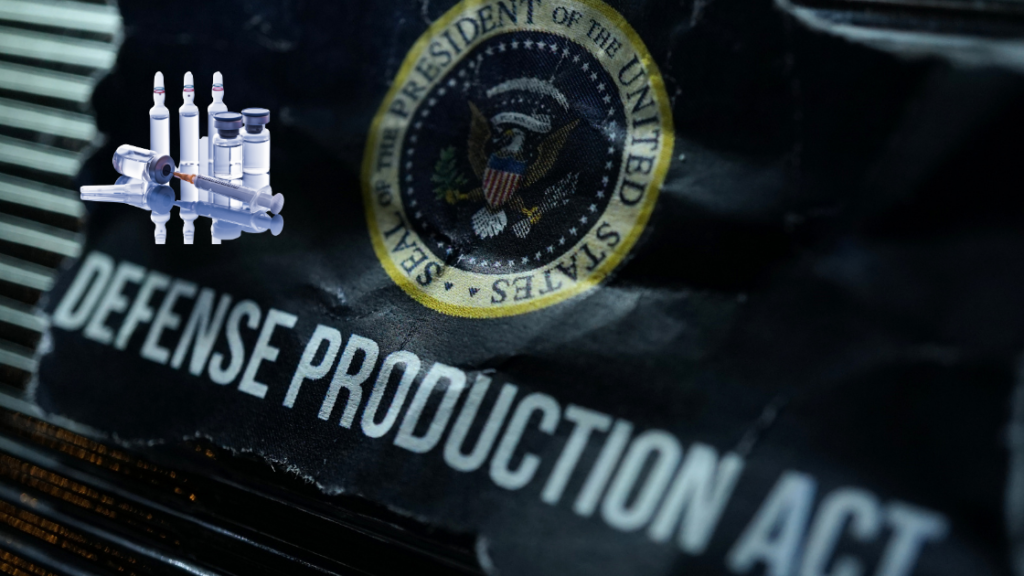Americans are impatiently waiting for their chance to receive a COVID-19 vaccination. It’s estimated 70 to 85 percent of the nation will need to be fully vaccinated in order for the United States to return to “normal” living conditions. So far, however, only about three percent of the U.S. population has been fully vaccinated.
Clearly, there’s a lot of work left to be done. But the priority should be to rapidly increase vaccine manufacturing and to distribute all available doses. To accomplish this, President Biden should invoke the Defense Production Act (DPA) in order to get more U.S. pharmaceutical companies involved in vaccine production.
[Michael Stumo | February 15, 2021 | Inside Sources]
The DPA has already seen increased use during the pandemic. On February 5, the Biden Administration announced it would use the DPA to increase supplies of the inputs needed to manufacture the vaccine and to expand the availability of at-home test kits.
However, when it comes to actual vaccine supplies, Americans are still waiting. In recent weeks, the Biden administration ordered 400 million doses from the five U.S. companies currently manufacturing the vaccine. Now, the Biden administration has finalized a deal to purchase another 200 million doses. That will increase the eventual total of available supply to 600 million.
This is encouraging news, but it doesn’t speed up the actual availability of the vaccine—since pharmaceutical companies can only crank out as many doses each week as their production lines will allow.
What matters is getting the vaccine to the American people as swiftly as possible, though, which is why the House Energy and Commerce Committee will hold a February 23 hearing. Committee chairman Frank Pallone (D-NJ) intends to advance legislation to enable the White House to expand vaccine production capacity, COVID test kits, and other critical needs.
This is where the Defense Production Act (DPA) comes in. Enacted in 1950, President Truman used it to mobilize industry in support of the Korean War effort. Now, in fighting the coronavirus, President Biden can use it to compel businesses to accept emergency production contracts for the manufacture of urgently needed COVID vaccine doses. The good news is plenty of U.S.-based pharmaceutical companies are already willing to assist in the effort. For example, Nexus Pharmaceuticals—which recently opened a state-of-the-art facility in Wisconsin—announced it is ready, willing, and able to launch vaccine production even as it continues to manufacture other essential medicines. Nexus’ factory could manufacture 10 to 20 million vaccine doses each month.
Invoking the DPA would mean the federal government instructing the five current vaccine manufacturers to start working with companies like Nexus in order to increase overall weekly output. The present vaccine producers would share supplies and procedures in order to bring these additional manufacturers up to speed as quickly as possible. Doing so could help to ensure a great increase in weekly vaccine output.
Widening the circle of vaccine production would also help to establish a greater resurgence of drug manufacturing in the United States. Much of America’s pharmaceutical manufacturing has moved offshore over the past 30 years, including the production of generic medications that comprise 90 percent of America’s daily needs. Ramping up vaccine production should be part of a wider effort to rebuild America’s domestic drug-making so that the nation can respond more rapidly to future health threats.
President Biden should invoke the Defense Production Act to accelerate vaccine manufacturing in the United States. Bringing in additional domestic pharmaceutical companies would be a win-win, since it would not only boost overall production but also increase jobs throughout the domestic pharmaceutical supply chain. The end goal, of course, would be to speed up herd immunity—and get those 600 million doses out into the country as swiftly as possible. That’s why it’s sensible to start getting more companies on board and making the vaccine—to get more Americans vaccinated in the near future.
Read the original article here













